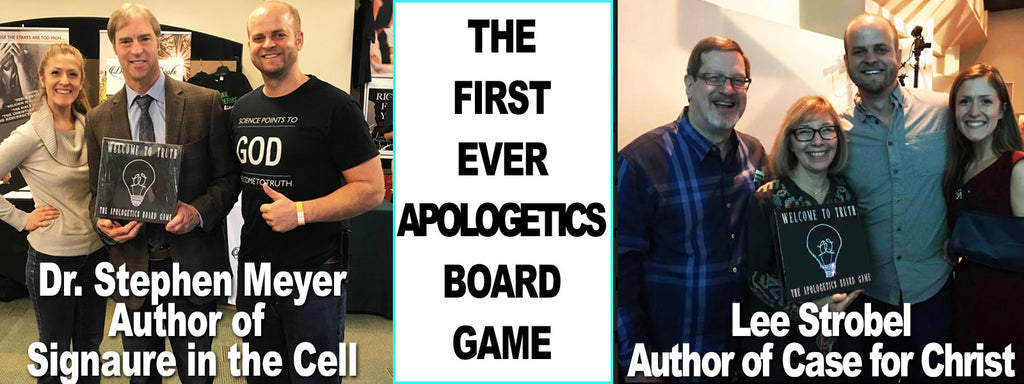Ultimate Guide to Christian Apologetics and Defending Your Faith
October 09, 2019

Why are you a Christian?
Is it because you were just brought up in the church? Are there reasons or evidences that support your convictions?
Are there examples of apologetics in the Bible?
Until I discovered apologetics, I didn't have any reasons.
But once I found apologetics, (whether watching videos on mainstream apologetics, Catholic apologetics, or just reading through my Apologetics Bible) my eyes were opened to a whole new world.
I began reading books by the dozens, over the last few years, and I am going to share with you, step-by-step, what I learned from all those hundreds and even thousands of pages of books, in this single blog post.
I will not be going over deeper topics like presuppositionalism, or classical apologetics, but sticking more to the average, simple apologetics that ANYBODY can begin to utilize in their walk.
If you don't own your Apologetics study bible, I am hoping this blog post will give you a GREAT place to learn, asl questions, and share the information with your friends and teachers.
If you would like to go straight to a certain section, here is a table of contents below:
- 1. What is Apologetics?
- Are There Any Christians Who Actually Have PhDs?
- 2. YEC vs. OEC
- 3. What is Truth?
- Self-Defeating Statements
- Objective vs. Subjective Truth
- 4. Morality Points to God
- Moral Relativism
- The Moral Argument
- But Why Does God Allow Evil?
- Love Requires Free Will
- I Decide My Own Morality
- Maybe Society Determines What's Right and Wrong
- 5. The Big Bang
- What is Cosmic Background Radiation?
- Are There Possible Models Other Than the Big Bang?
- 6. Problems with Darwinian Evolution
- Macroevolution vs. Microevolution
- The Cambrian Explosion
- So-Called Icons of Evolution
- Specified Complexity of DNA
- The Watchmaker Argument
- What are Irreducible Complexities?
- 7. Fine-Tuning
1. What is Apologetics
So let's start here: what is apologetics? Who is an apologist?
Apologetics comes from the Greek word, 'apologia', which means 'to make a defense of' and shows up in 1 Peter 3:15, amongst other places.

So we are called to be ready to give a defense, or reasons, for our faith in Jesus Christ.
IF YOU ENJOY LEARNING TO DEFEND YOUR CHRISTIAN FAITH, CLICK THE LINK TO CHECK OUT THE FIRST EVER "APOLOGETICS BOARD GAME".
Are There Any Christians Who Actually Have PhDs?
There is a certain stigma prevalent in the media which is that smart people don't believe in God. This is completely false of course.
Some of the greatest minds in human history have been believers, people like Pascal, Galileo, and even Isaac Newton.
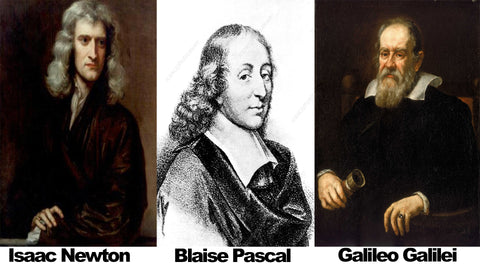
The idea today that is being pushed is that people who believe in God are just superstitious, or kind of wacky, and there are no actual scholars or doctors who believe in Jesus.
Well that's wrong, very wrong.
There are numerous Christian Ph.Ds, who are some of the smartest people in the world, including Dr. Hugh Ross who is an astrophysicist, and Dr. John Lennox who has 3 earned doctorates and is a professor at Oxford.
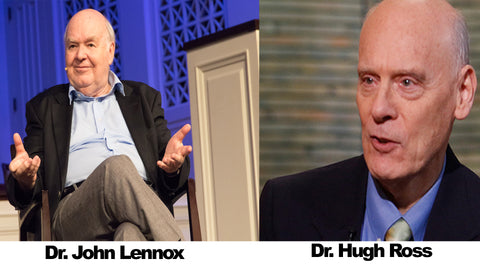
And on the topic of Christian apologetics, I would like to give you a list of some of the top apologists in the world. Some debate at universities, and others write influential books.
Our list includes (in no particular order) Frank Turek (CrossExamined.org), Ravi Zacharias apologetics (RZIM.org), Lee Strobel, (LeeStrobel.com) J Warner Wallace (ColdCaseChristianity.com) and William Lane Craig (ReasonableFaith.org).
They even have many books and resources in apologetics for kids, or apologetics for teens.
Here is a video that talks about some of these top apologists in the world:
OK, now that you are somewhat familiar with what apologetics is, and who some of the top apologists are, let's get into some apologetic content.
We will start basic, addressing what the different belief systems are.
What does it mean to be an atheist, or an agnostic? We break down these different belief systems in this quick video below:
NEW CHRISTIAN T-SHIRT Launch - OVER 35% OFF
2. YEC vs. OEC
In Genesis apologetics becomes relevant right away.
For this section, we are going to be breaking down some of the key differences between YEC (Young Earth Creation) vs. OEC (Old Earth Creation).
Young Earth Creationists (YECs) are individuals who believe in a Genesis account referring to a 24-hour day.
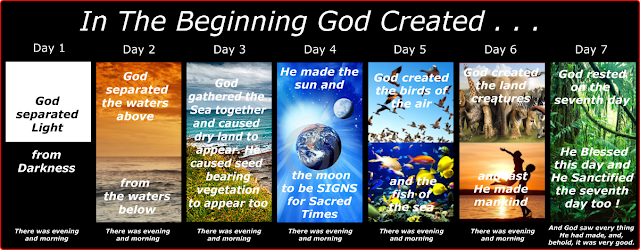
When Moses, who is generally seen as the one who wrote the Pentateuch (the first 5 books of the Old Testament), is recording these events, he is recording them as Day 1, Day 2, etc.
Well, Young Earth Creationists (YECs) believe each day recorded is a 24-hour day. Old Earth Creationists (OECs) believe that it refers to a period of time.
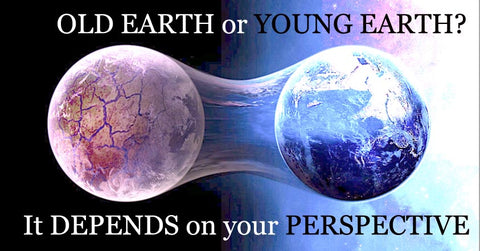
Here's why.
The word that is used in the book of Genesis to refer to day is the Hebrew word, "yom", Now, the literal definition of this word is, "a collection of".
So literally, the Genesis account reads, "On Day 1 (collection 1), on Day 2 (collection 2) etc..."
Interestingly, in almost all cases in the Bible, when there is a number next to the word, "yom", it is referring to a 24-hour day. However, this is not true in ALL cases in the Bible, but most of them.
Here is a picture of the word yom, written in Hebrew, from Answers in Genesis, a very popular Young Earth website that is worth checking out, started by Ken Ham.

OECs would say that Moses, who was recording this (who lived around 1400 to 1500 BC), was not around at the beginning of the universe (obviously). And God was showing him a collection of events, from the past, that had occurred.
OECs would say that God showed him the first collection of events (yom 1 (collection 1), then the second collection of events (yom 2 (collection 2)), and so on.
Just to reiterate, OECs believe that when God was showing Moses events from the past, he showed him on Yom 1 (collection 1), these events occurred, on Yom 2 (collection or day 2), these events occurred, and so on.
Now it is important to understand that OECs are still Christians, they are still people who believe in Christ.
When I first started learning about apologetics, and someone would say that the universe is older than 10,000 years, I would cry, "Heresy!" because I didn't understand that, again, the Hebrew word used for day (yom) literally means "a collection of".

So again, YECs believe the universe was created in 6 literal 24-hour days, and that the universe is around 6 to 10,000 years old. And OECs believe the universe could be millions or billions of years old. And these are the main two beliefs, but of course there are also Christians (who love Jesus) who believe it is somewhere in the middle (maybe hundreds of thousands of years old).
Now of course God could have created the universe in 6 days, He could have created it in 6 seconds, God is God.
It is also important to make the distinction between OECs and Darwinian Evolutionists or Theistic Evolutionists (those who believe that humans still evolved into becoming humans from an earlier species similar to apes).
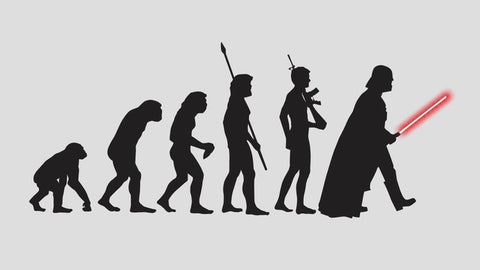
I am not going to get into refuting Theistic Evolution in this blog, but just know that if you want further understanding of it, there is a 1,200-page book called, "Theistic Evolution," that critiques this belief.
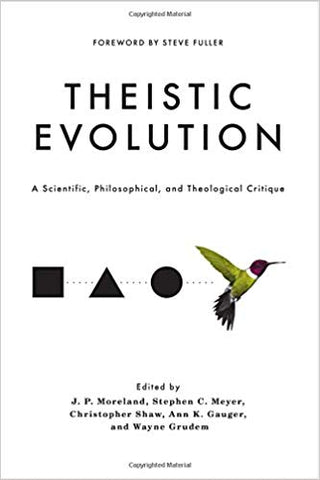
It is important to note that all of Cosmology (the study of the origin of the universe), and all of geology (the study of the earth's physical structure and substance) seem to point to an old earth (that the universe is older than 6 to 10,000 years old).
However, YECs will say that's because God created the universe with the "appearance of age". Just as God created Adam and Eve, not as babies, but as adults, He did the same with the universe.
YECs would point to issues with carbon and radiometric dating that have occurred, like trees being planted 40 years ago, which go through a strong storm, and then are carbon-dated, and show to being millions of years old. And YECs will point to the flood as the tumultuous event that made everything appear to be older than it is.
Here is a video we put together that explains a bit more what carbon dating is, as well as provides a more in-depth understanding of the topic:
So OECs are pointing to carbon and radiometric dating to substantiate their beliefs, while YECs are showing that these methods are unreliable.
There are many different directions you can go with this. People will quote 2 Peter 3:8, to show that there are differences in our understanding of time and that of God.

And when you begin to study Relativity and see how time itself was created, and that time can be different from different relative view points, etc. things can get very tricky. But we are not going to get tricky, because this is more of an introductory blog.
The important thing to understand is that there are 2 primary beliefs (within the Christian community) for how the universe came about, and with both views the Christians are true and sincere, and both have good and interesting reasons for their beliefs, and it is worth studying the evidence for yourself.
We don't know exactly when it was created, but we know WHO created it, and that God created us in HIS image, that we didn't evolve from ape-like ancestors, but that God truly created us.
Here is a video we put together which goes over what we have just discussed.
3. What is Truth?
Can truth be known? What is truth?
Many moral relativists (whom we will talk about in the next section) would say that truth cannot be known, or that all truths are equal.
Well to make the "truth statement" that "truth cannot be known" is actually what's called a "self-defeating statement" (a statement is self-defeating if it does not satisfy itself).
Here is a video which breaks down some of these key concepts:
Self-Defeating Statements
To say "truth cannot be known", you are making a "truth statement" that there is no such thing as truth. Another example of a self-defeating statement is the statement, "Science is the only begetter of truth". Why?
Because you are making a statement (science is the only begetter of truth) which cannot be tested under a microscope, or through the scientific method. Therefore your own statement must not be true, according to your own standards. See the contradiction?
Here is another short video, highlighting philosopher David Hume, that describes self-defeating, or self-refuting, statements:
Objective vs. Subjective Truth
Another important distinction to make when dealing with truth is differentiating between objective vs. subjective truth.
Objective truths are facts regardless of how you feel about them, while subjective truths are true about the subject making the statement.
For instance, to say, "Ice cream is great!" is a subjective truth because it is true about you, the subject, making the statement. But if you were to say, "This ice cream is made with cream," that would be an objective statement because it is true about the object (in this case, the ice cream), regardless of how you, the subject feels about it.
That can get a little hard to understand, so here is a video to better illustrate the point:
Here is a quick review of some of the concepts we have covered here in this section, as well as some of the ones we are going to cover in the next section:
4. Morality Points to God
What is morality? Morality is made up of what we should and should not do. In this section, we will be going over why morality in our world is so important, and how it actually ends up giving concrete evidence that God exists.
Moral Relativism
In this section we will ALSO be talking about something called moral relativism, which is the belief that truth, knowledge, and morals all exist, and all are relative to particular cultures, particular, societies, or historical context.
So why should you know about moral relativists? Because they are running rampant all over our college campuses, media outlets, etc. Hey if it feels right to you, then it must be right, right?
WRONG, WRONG, WRONG!
Moral relativists believe that there is no absolute truth; that there is NO RIGHT OR WRONG. Here is a video that illustrates how ridiculous that ends up being:
Christians of course believe that there IS an absolute Creator, and that He DOES have absolute truth, which He has revealed to us through His Word.
Moral relativists would say that each society has its own truths, as well as each culture, and that truth can differ in different time periods. They would say that no one truth is superior over another truth.
But if they believe no one is objectively right or wrong, then that means Hitler was just as good as Mother Teresa, and vice versa.
Here is a video which illustrates this point:
There is a great book on understanding moral relativism and how to break it down, by Dr. Francis J. Beckwith and Gregory Koukl, called, "Relativism: Feet Firmly Planted in Mid-Air". Here is a quick video where I show the book:
The Moral Argument
The moral argument is perhaps the best argument someone can offer for the existence of God.
However, before I show you the moral argument, we must discuss what are called, "objective moral values", or "objective morality". These are things that all cultures, across the world would see as objectively wrong.
This means that it doesn't matter what culture you are apart of, everyone would see something like murdering children, or raping 3-year-olds for fun, as objectively morally wrong.
So that would mean that objective moral values DO exist. Now for the moral argument.
It is a 3-part argument and goes like this:
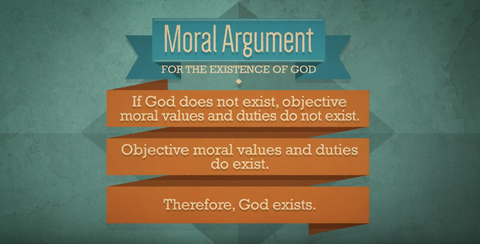
The distinguished philosopher, Dr. William Lane Craig, whose website ReasonableFaith.org is an absolute gem, explained this argument further in this video:
Dr. Craig has said in many interviews that this is one of, if not his favorite go-to argument, when presenting at college campuses and debates throughout the world.
But Why Does God Allow Evil?
The problem of evil is a serious one. How could a good and loving God allow evil in His world? Well the emotional side of the answer is not such an easy one. It is never easy to comfort someone who has just encountered great loss.
However, logically speaking, the answer is pretty simple. You see, people look at evil in the world, and say, "How could a good God allow all this evil?"
But logically, the answer is actually pretty straight-forward. The fact that there is evil in the world actually points TO a God. Here's why.
If there's evil in the world, then there must be good in the world (because otherwise how would you even know what evil was without knowing what good is). If there is good and evil, then there must be a moral law, something that distinguishes between good and evil, right and wrong.
If there is a moral law, then there must be a moral Lawgiver, someone who established that moral law in the first place. Thus, God. Here is a quick video that explains the concept a bit more:
Love Requires Free Will
The other thing you must understand is that love actually requires free will. Without free will for us to choose our own actions, (even if our actions are wrong) love would not exist.
Let me give you an example: If I tie my wife up in a room, in order to keep her from leaving me, would I ever really know that she truly loved me?
No I wouldn't because I would be forcing her to stay with me. In the same way, God did not create robots, but free beings, who can choose to follow Him, or choose to disobey Him, but either choice is made by the person's own free will, as you will see in this quick video:
Does God send people to hell? Well, ironically, we actually choose hell, and God respects our decision. I explain why in this quick 1-minute video:
I Decide My Own Reality
This is called "I Say Morality", also known as individual ethical relativism, or ethical subjectivism. This teaches that individual preferences offer the only guideline to behavior. So what I think is right must be right, because it is my opinion.
The problem with this is when what I feel is right or wrong conflicts with what someone else feels is right or wrong. I talk more about it in the quick video below:
If I decide what is right and wrong, what's to separate me from someone with no morality? Nothing. We both do what we think is right to do at the time, without answering to any transcendent reality of right and wrong (like God).
Maybe Society Determines What's Right and Wrong
Well some might argue that society is the one who determines what is right and wrong.
The problem with this argument can be clearly seen.
What about when your society is dead wrong (like slavery occurring in the U.S. in the past, or the horrific treatment of Jews in Nazi Germany). If the law of the land also determines what is right and wrong, and slavery is the law of the land, then to try and reform it would not only be unlawful, but morally wrong.
This is why we need God to determine right and wrong. Here is a short video that explains this concept:
5. The Big Bang
So what is the Big Bang?
Before I get into that, I just wanted to cover that there are either 1 of 2 possibilities for the universe: either the universe is eternal, or whatever or Whoever created the universe is eternal.
Well the Big Bang basically proves that the universe itself had a beginning, which means it is not eternal, which leaves only one option left...Whoever created the universe is eternal...God. Here is a quick video that goes over this concept:
Now let's talk about the Big Bang.
The Big Bang describes the moment when matter, space, and even time itself were first created. That's right, time...was...created. Let that sink in for a second.
Now if time never existed, then whatever created time had to be timeless. If space never existed, then whatever created space must have been spaceless. And if matter never existed, then whatever created matter must have been immaterial.
Who do we know that's timeless, spaceless and immaterial?
God.
Unless you think that this all just happened by chance, and that nothing created something.
Here is a quick video talking about how time had to be created by a timeless Being:
The term "The Big Bang" was actually first coined by Sir Fred Hoyle, although Hoyle said the phrase in a mocking tone.
He, like much of the scientific community at the time, actually believed the universe was static and eternal, that it had always existed.
However, after Edwin Hubble discovered the red shift of stars and galaxies in 1929 (showing the universe was expanding), and after the discovery of cosmic background radiation (heat and light from the Big Bang explosion), the scientific consensus became that time, matter and space were truly created at a single point in time.
All this Big Bang and scientific talk might get a little complex, so here is a video that will break down some of the definitions we are going to be covering in this section:
What is Cosmic Background Radiation?
The above video talks a bit about the cosmic background radiation from the Big Bang, and we also mentioned it above.
So what is the cosmic background radiation from the Big Bang? This quick video from our educational board game, gives a bit more information:
Are There Possible Models Other Than the Big Bang?
There are other models of the universe, besides the Big Bang, that some like to postulate, however the Big Bang is, in the scientific community and throughout the world, by far the most popular.
But I will cover a couple others in these next two quick videos, just so you have an idea of what they are.
The first is called the Oscillating Model, and I go over it in this quick video:
The next model is a bit more popular in the scientific community and is called the Multiverse Theory. I explain in greater detail below:
So now we know that science actually points to a moment when time, space and matter were created.
However, did God create it, or did it just evolve over time? In this next section, we are going to turn our attention to evolution.
In particular, we will discuss Darwinian Evolution, or macroevolution, which shook our world up when it was first proposed by Charles Darwin in 1859, in his book On the Origin of Species.
But is it true?
6. Problems with Darwinian Evolution
OK, so what do I mean problems with Darwinian Evolution? I mean, the majority of the scientific community vouches for this theory.
Well before I get into Darwinian Evolution, I need to define some key terms we are going to be going over. Who is Charles Darwin? What does evolution mean? What is natural selection? We will answer all these questions and more in this section's definitions video:
This science portion does have quite a few technical terms that it is important for you to familiarize yourself with as we dig further.
Now that you are a bit familiar with Charles Darwin, Darwinian evolution, and natural selection, I just have one more "definitions" video I would like you to watch that will help you better understand the upcoming science lessons.
So check it out:
Ok, now that you are up to speed on some of the key definitions you are going to need to be familiar with, let's proceed.
Macroevolution vs. Microevolution
When dealing with evolution, there is a key distinction that needs to be made at the outset, and that is between macroevolution and microevolution.
The reason this distinction needs to be made is because Christians believe in one kind of evolution (microevolution) and dismiss the other (macroevolution).
Why?
Because microevolution (like dog breeding (change within a species)) is proven and happens every day, while macroevolution (change outside of a species) is NOT scientific.
Here is a quick video for further explanation:
This topic (macroevolution vs microevolution) is not something you want to just gloss over. It is SUPER important.
Because Darwinian evolutionists (what they are teaching us in schools today) try to group them together all in one category called, "evolution". And if you don't differentiate them, then someone will say you are STUPID for denying evolution because change within a species is scientifically proven.
But that is not what you are arguing against. You, as a Christian, DO believe in microevolution (change within a species (dog-breeding)); it is macroevolution (change outside of a species (worms evolving into humans)) that we are arguing.
Again, they will try and tell you that there IS NO difference and that they both are under the same umbrella, but that is false.
The Cambrian Explosion
Staying on the topic of fossil evidence, let's go over one of the most shocking fossil discoveries called the "Cambrian Explosion".
The Cambrian Explosion basically disproves Darwin's theory of all organisms evolving in a gradualistic nature, as we see the onset of 95% of the animal phyla we have today over a relatively short period (from a geologic standpoint) of time.
Here are some more details in this video below:
So-Called Icons of Evolution
Now that you know the difference between microevolution and macroevolution, let's get right into some of the lies, the so-called "Icons of Evolution" still showing up in school books throughout the world, that are either fabrications or straight-up lies.
In this video, we will be covering the Miller-Urey experiment, Darwin's Tree of Life, Haeckel's Drawings, and the Archaeopteryx.
Specified Complexity of DNA
So let's continue to lay some ground work for the major problems with Darwinian evolution.
Next we turn to what Dr. Stephen Meyer calls in his illustrious book, Signature in the Cell, specified complexity.
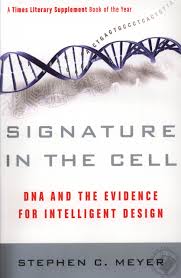
Atheist scientists, including Richard Dawkins, have postulated that the amount of information inside of even the simplest DNA molecule that could have existed as life began in our universe is equal to 1,000 23-volume Encyclopedia Brittanica sets, which is equivalent to about a MILLION typed pages of information.
Where did that information come from?
Let's break this down a bit further. Our DNA is made up of a language. Just like a computer code is made up of a series of ones and zeroes, so too our DNA is made up of a combination as well.
Except instead of ones and zeroes, our code exists of 4 letters, A, C, T, and G. Those stand for adenine, cytosine, thymine and guanine.
I don't want to get too complex with it, but just know that the combination of letters inside the DNA of every cell in your body directs the entire makeup of your entire body. The video below explains a bit more:
The Watchmaker Argument
Let's take a quick break from our science exploration to make a philosophical observation.
William Paley, an 18th century philosopher, made his famous watchmaker argument, which points to God. I explain further in the video below:
OK, let's get back to science now as we close out this section.
What are Irreducible Complexities?
Let's close out this section by talking about something called, "irreducible complexities". Dr. Michael Behe coined this term in his 1996 blockbuster book, Darwin's Black Box, and in it he points out that there are things in nature which can NOT be explained by Darwin's gradualistic explanation.

This quick video explains a bit of what I am talking about:
The video below goes into a bit more detail on one of the most amazing irreducible complexities, the "Bacterial Flagellum", and how it actually works.
So in this section, we have covered the difference between macroevolution and microevolution, the Cambrian Explosion, the so-called icons of evolution, the specified complexity of DNA, the watchmaker argument, and irreducible complexities.
In this next section, we will delve into the fine-tuning of the universe, which in and of itself, is compelling enough evidence to stun even the most ardent evolutionary scientists.
7. Fine-Tuning
In this section, we will be exploring some of the amazing evidence that keeps many Darwinian evolutionists up at night.
The Anthropic Principle basically states that it seems like the universe was created specifically for us, as humans.
There seems to be a "fine-tuning" in all the dials of the universe which make our planet, Earth, habitable for us to live in.
Here is a quick "definitions" video for some of the content we will be covering in this section:
I discussed, in the video above, the videos by Dr. William Lane Craig. Here is a great one on Fine-Tuning that he put together that will more fully explain this concept:
As you study these anthropic constants, the data is just astounding.
Here in one final quick video in this section, on the Teleological argument.
